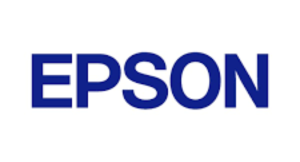In today’s competitive business landscape, finding ways to cut costs without sacrificing efficiency is crucial. Office technology plays a significant role in day-to-day operations and optimising its usage can result in substantial savings for your business. In this article, we’ll explore effective strategies to save money on office technology, ensuring that your budget remains intact while maximizing productivity. So, let’s dive in and discover how you can achieve cost savings without compromising on quality.
1. Evaluate Your Current Technology Infrastructure
To identify areas where cost savings can be made, start by conducting a comprehensive assessment of your current technology infrastructure. Take stock of your hardware, software, and service subscriptions to determine what is essential and what can be optimised or eliminated. By streamlining your technology inventory, you can reduce unnecessary expenses and allocate resources more efficiently.
2. Embrace Cloud Based Solutions
Transitioning from traditional on-premises systems to cloud-based solutions can yield significant cost savings. Cloud technology eliminates the need for expensive hardware investments, reduces maintenance costs, and offers flexible scalability to accommodate your business’s growth. Explore cloud-based options for email, document management, collaboration tools, and other applications to optimise your IT spending.
3. Consolidate Service Providers
Working with multiple service providers for various technology needs can lead to increased costs and complexities. Consider consolidating your technology services with a single provider who can offer bundled solutions. This not only simplifies management but also allows for better negotiation power when it comes to pricing and service agreements, resulting in potential cost savings for your business.
4. Optimise Printing Practices
Printing costs can add up quickly in an office environment. Implementing smart printing practices can help reduce expenses significantly. Encourage double-sided printing, set default printing preferences to black and white, and limit colour printing to essential documents. Additionally, promote a paperless environment by leveraging digital document management solutions and encouraging employees to utilize electronic communication and collaboration tools.
5. Implement Energy Efficient Equipment
Energy consumption can be a significant expense in any office setting. When upgrading or replacing office equipment, prioritise energy-efficient options. Look for devices with energy-saving features such as sleep modes, automatic power-off timers, and ENERGY STAR certifications. By reducing energy consumption, you not only save on utility bills but also contribute to a greener and more sustainable workplace.
6. Regularly Update Software and Firmware
Keeping your software and firmware up to date not only enhances performance and security but can also lead to cost savings. Updates often include bug fixes and performance improvements, optimising system efficiency and preventing potential issues that could result in costly downtime or data breaches. Establish a regular schedule to update all technology assets, ensuring that your business stays protected and operating at its full potential.
Incorporating these cost-saving strategies into your office technology management can yield significant benefits for your business’s bottom line. By evaluating your current infrastructure, embracing cloud-based solutions, consolidating service providers, optimizing printing practices, implementing energy-efficient equipment, and regularly updating software and firmware, you can achieve substantial cost savings without compromising productivity. Make these cost-conscious decisions a priority in your business to achieve long-term financial success while maintaining a high level of technological functionality.














